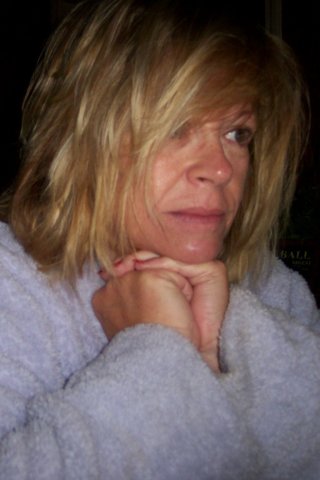
I wasn’t sure the car would stop. The street held remnants of an earlier rain, and the ball rolling into it, was a surprise. Even more startling was the young child who followed, despite a large group of variously aged family members congregated in his driveway. As I braked, I turned to look at his family, hoping someone would see the boy, and come to his aid. Several of them turned, looking in his direction.
Blessedly, the car did stop. As I sat, allowing the child to retrieve his ball and move well clear of the car, I turned again to look at his caretakers. Some continued to watch him, while the more oblivious of the group continued talking, and laughing, and jostling; no one moved, no one called out. The boy snagged his ball, and grazed me with dark, dancing eyes, before darting back into his driveway.

My son’s presence in the garage meant he had something to tell me that wouldn’t wait.
“Mom!” His inflection confirmed my suspicion.
He burbled as we carried my things inside.
“Science class was so cool today! Mr. Patterson, you remember him, right? Well, Mr. Patterson said he’d been waiting for a rainy day to tell us this story, right?”
He freed his hands by setting a bag on the kitchen table, and began using them to bat at the puppy, whose excitement on seeing his friend come inside was just as exuberant as it had been the first time, about thirty minutes before.
“It was about a witch. Well, not really a witch. Well, she WAS a witch, but now she’s a ghost, right? I mean, it’s kinda like “Blair Witch”, but not really.”
He continued to share his story, as I moved about the kitchen. Some of his words were lost in the sounds of cans scraping along shelves and refrigerator bins opening, but I understood the crux of his story. The long and short of it, was that Mr. Patterson had set aside the business of beakers and microscopes to take advantage of a rainy day, by regaling a roomful of eleven-year-olds with his stories of adolescent close-encounters with beings from “the other side”. Unfortunately, in arriving at this decision, Mr. Patterson had forgotten his role as authoritarian. He had underestimated his own importance by sharing a frightening story with children who are directed, daily, to listen to him, and to remember every word he utters.
The next morning, I awoke to a pile of blankets on the floor beside my bed. And, somewhere in that pile, lay my frightened, sleeping son.

Shane held his cell-phone behind his back.
“Mom? Can I go to the movies with Koran?, he stage-whispered.
I asked all the usual questions; what, when, where, and gave my consent. As he ran, grinning, back to his bedroom to change, my cell-phone rang. It was Jill, mother of Alex.
“Is Shane going to the movies with Koran?”
“Yes. Is Alex?”
“Did you know that they are dropping the kids off? There will be no parents…I don’t know.”
Anger crowded my embarrassment.
“No, I didn’t know that. Let me call you back.”
I called Koran’s father, who back-pedaled furiously when questioned. I thanked him for the invitation and called Jill to tell her Shane wouldn’t be going. Her sigh spoke her relief, and I thanked her. We watch out for each other…

Laughter breached the closed door to the playroom as Shane and two boys who live next door played video games.
“Lunchtime!”, I called, imagining myself in belted shirt-dress, high heels, and pearls. June Cleaver’s got nothing on me.
Six hands vied for space under the bathroom spigot before the boys barreled into the kitchen to ham and cheese on wheat, Sunchips, and milk.
“Is there mayonnaise on this?” Ray studied his sandwich without touching it.
“Mayo and mustard.”, I answered, still in character, before resuming wiping the counters.
“Mom?” This was my son.
“Yes?”
“Do we have any vanilla stuff? You know, for the milk? They don’t drink plain milk. They like vanilla.”
I turned to find my storybook lunch decimated. Shane, his back to me, munched contentedly on the contents of his plate. To his left, two slices of discarded bread messily decorated the outskirts of a plate, while his friend held the formerly sandwiched slice of ham to his mouth. To his right, Ray had finally found the nerve to touch his food, removing all traces of mayo, leaving a slice of bread topped by mustard and ham. Both glasses of milk remained untouched.
“No, I’m sorry. And, I’m sorry you don’t like your lunch.”
“It’s okay, Mom.” Shane rushed to my defense. “It’s just that they don’t eat brown bread. They like white. And Ray doesn’t like mayonnaise, and their Mom always puts vanilla in the milk. But, that’s okay.”
That evening, the boys’ mother returned the favor, inviting Shane to dinner.
“What did you have?”, I asked on his return.
“Chicken nuggets.”, he answered. “They always have chicken nuggets. That’s what they like.”
Somehow, I can’t imagine the boys’ father braving the hazards of a drive across town in Atlanta traffic, thinking, “Mmmm, chicken nuggets!”

My sister will be late to her own funeral. This was my thought as I rested my head against the gaily colored mural adorning the wall of the local “Rio Bravo”. The trill of a cell-phone caught my attention, and seeking the sound, my eyes came to rest on a girl of about six. She flipped the phone open with one perfectly manicured hand, while the other rested on the denim-clad knee of a man I supposed to be her father. She brought the phone to her ear and turned, revealing a powdered face, featuring painted lips, carefully placed glitter, and several coats of black mascara. I’m sure my mouth fell open.
One tiny foot rocked back and forth on the tip of a stacked heel as she talked. The pink polish on her nails matched, perfectly, the hue of a sweater that clung to her board-flat chest before falling over expensively tattered jeans. Her future flashed across my eyes, leaving me with a feeling of profound sadness for her squandered childhood

Shane’s cell-phone had rung at least twenty times over the course of an hour.
“Who is that?”, I asked, irritated by the sound of my mother’s voice coming from my mouth.
“Valerie…” Shane’s voice, too, sounded stressed. He took advantage of a break in the noise to go outside, picking up a basketball on his way towards the goal.
When the offending noise began again, I picked up the telephone, intending to tell Valerie to cut back on her calls before I was forced to have a talk with her mother.
The Caller-ID bore her mother’s name and cell-phone number, but the voice on the other end of the line was Valerie’s. I made no such threat.

His efforts at whispering drew my attention.
“I know, but we’re changing plans in June. It doesn’t make sense to buy a new phone now.”
The span of his silence suggested his wife’s increasingly shrill voice.
“He can use my old phone.” These words were louder, more forceful, in keeping with a man with a plan.
Another silence ensued, and when conversation continued, it went on for some time, though he spoke few words.
Later, he visited the office across from mine.
“My son lost his phone.”
“Can’t he just use your old one until we change plans in June?” , his sensible friend asked. “Buying a new phone now would just be a waste of money, because it won’t work with the new plan.”
“She wants to get him another Razor. She’s worried what his friends will think.”
His friend’s derisive chuckle spoke volumes.
“I told her we’d just use mine.”
Later that afternoon, his loquacious wife, with children in tow, came by to pick him up on their way to purchase the Razor.

“What are you doing this weekend?” I asked, as the clock ticked towards four, and our two-day pass.
“I’m taking my son to a birthday party at the Roxy.”, came the bored-sounding answer.
“The Roxy?”, I asked, incredulous. “THE Roxy? The concert hall downtown? A twelve year-old child is having a birthday party at the Roxy?”
“Yeah…it’s to make up for all the bot-mitzvahs.”
I had no answer for that.

What will become of our children? It seems every passing day presents me with another horrifying example of adults who have seemingly forgotten their role. A young child is allowed to follow a ball into a rain-soaked road in front of an oncoming car, and they watch. A science teacher, whose words are expected to form the minds of our children, spends an entire class period convincing them that witches and ghosts are not just the stuff of Halloween charades. A group of eleven year-old boys and girls are invited to a Sunday afternoon movie by parents who can’t be bothered to chaperone. A Harvard educated mother feeds her children a diet so consumed by frozen, fried chicken and vanilla flavored milk, that sandwiches on whole-grain, accompanied by organically produced milk, appear exotically disgusting. I shared a restaurant waiting room with a six-year-old whose make-up was applied more professionally than mine. A mother, apparently, never questions her daughter about hundreds of calls made from her cell phone to a boy she sees, every day, in their sixth-grade classroom. A boy’s father caves to his ranting mother, by spending money on a cell phone that will be useless in less than six months; in an effort to retain pre-pubescent social status. And, an entire concert hall, complete with seating for several thousand, is rented in honor of a twelve-year-old girl who had the misfortune of being born to Christian parents.
How long before the odds play out? Who do our children have to look up to? When did outings and fancy electronics replace structured caring and responsibility? When did children begin making decisions that affect an entire family? As they cry through smeared mascara, who will explain objectivism to our girls? What is left? What will they have to look forward to; to work towards? How will they define “special”?
© Copyright 2007-2009 Stacye Carroll All Rights Reserved

































